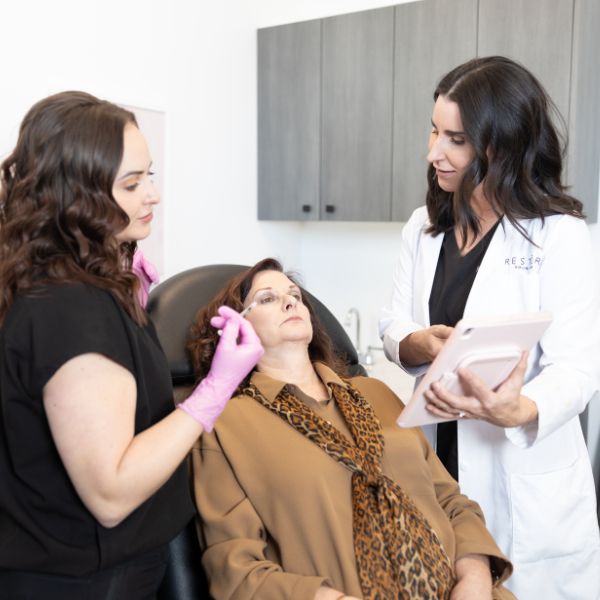
The Thrive Program
Hormone Repalcement Therapy (HRT) and Nutirtion Optimization
The Thrive Program consists of Hormone Replacement and Nutritional Optimization for both men and women - managed by our experienced medical providers. Hormone Replacement can be life changing for people struggling with the Menopause/Andropause transition – or for anyone seeking increased energy, improved mood, enhanced physical and mental performance, improved libido and overall vitality.
About The Thrive Program

FDA Approved
Hormone Replacement Therapy (HRT) has been FDA approved since 1942 – with millions of people treated worldwide.

Professional Support
Our experienced medical professionals are with you every step of the way - monitoring your labs and dosing - with 24/7 support throughout the program.

Convenience
Medications are shipped directly to your home, with check-in appointments available in person and virtually.

Nutritional Support
As a part of your Thrive Program, we will assess your nutritional needs and build a comprehensive plan to optimize your supplements and vitamins

Enjoy Increased Vitality
Hormone Replacement Therapy (HRT) can improve energy, sleep, strength and endurance, well-being and libido.

Improved Health
Hormone Replacement Therapy will help you lose fat and gain muscle. This leads to significant long term health benefits - including reductions in heart disease, diabetes, osteoporosis and dementia.
What is Nutritional Optimization?
What Are the Most Common Nutritional Deficits?
What To Expect?
Thrive Program Medical Evaluation
At your Thrive Program Medical Evaluation, one of our experienced providers will review your medical history, labs, and goals for your health. We will use a sophisticated scoring system to determine which hormones and nutrients you may be deficient in. We will pair this information with you laboratory studies to build a comprehensive care plan designed to acheive your goals.
Bloodwork
Before we build your personalized care plan, we will do extensive screening bloodwork to assess your currently health status, risk factors, and any existing nutritional deficits.
We will assess your labs frequently during our program - to ensure that your overall health status is being fully optimized.
*If you do not have labs, you can come in for a consultation, however you will not be able to begin the Thrive Program until your labs have been reviewed. Eligibility is not guaranteed.
Pre Screening Questions
Interested?

After you complete the pre-screening questions to see if you are eligible above, you can set up your initial Thrive Program consultation to learn more about what this exciting and groundbreaking form of medicine can do for you!
*If you do not have completed labs, we can do the initial Thrive Program consultation but cannot start the program until the necessary lab are complete.
Not A Member?
If you want to hear about our Medical Weight Loss and Aesthetic treatments in addition to our Thrive Program (Hormone Replacement Therapy and nutritional optimization) - please book a consultation below.!
